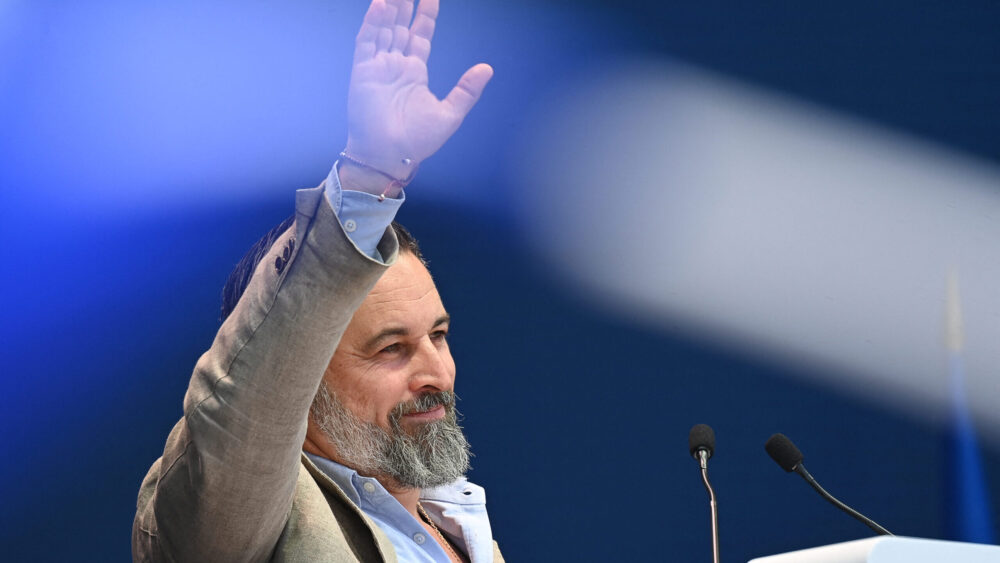VOX, Spain’s main nationalist-conservative party, is gaining ground among Catholic voters thanks to its hard line on Muslim immigration and its growing willingness to challenge parts of the Catholic Church’s leadership. According to the latest CIS barometer, 75% of its voters identify as Catholic—39% of them practicing and 61% non-practicing—while only 6% identify as atheist. A separate poll for the newspaper El Mundo estimates the party has picked up more than 300,000 additional Catholic voters in the past two months.
This surge is directly tied to party leader Santiago Abascal’s escalation in rhetoric on migration. In recent months, he has openly called for “mass deportations” and supported limiting Muslim religious practices in public facilities—most notably in Jumilla, a small town in southern Spain’s Murcia region, where the local government stopped Muslims from using sports halls for prayer. The Spanish Episcopal Conference (CEE)—the official body representing the country’s Catholic bishops—condemned the move. Far from softening his tone in response, Abascal suggested the bishops’ stance might be influenced by government subsidies tied to immigration programs, or by fears that ongoing investigations into clerical sexual abuse have left the Church unable to speak freely.
Polling shows this approach is paying off. Among practicing Catholics, VOX’s share of support has jumped from 18.7% in June to 24.1% in August, translating to 268,000 new voters. The growth among non-practicing Catholics is smaller but steady, from 15.5% to 15.9%, adding another 35,000 supporters. By contrast, the governing socialist PSOE has seen its support among practicing Catholics drop by five percentage points over the same period, while the main center-right opposition PP has failed to capture these disillusioned voters. Instead, it is VOX that is absorbing this religious electorate.
Polling data also reveals why the party feels confident in challenging the Catholic hierarchy. Seventy-five percent of VOX voters believe there is a serious problem with the integration of immigrants, and a majority say there are simply “too many” immigrants in Spain. These views are widely shared among both practicing and non-practicing Catholics in the party’s base, providing Abascal with a mandate to maintain his course even when it means clashing with Church leaders. “I am Catholic, but I have a political responsibility and I will exercise it,” Abascal declared recently.
The confrontation is symbolic as well as political. For many of VOX’s Catholic supporters, the dispute is not merely about immigration policy but about defending Spain’s cultural and religious heritage. The fate of monuments like the Valley of the Fallen—whose “resignification” under the socialist government was carried out in consultation with Vatican officials—remains a sore point for the party’s base, who see such changes as part of a broader erosion of Christian identity in the public sphere.
This shift is not unique to Spain. In Italy, Giorgia Meloni’s Brothers of Italy have rallied practicing Catholics around a hard line on migration and national identity. In Poland, the Law and Justice party has long mobilized voters by tying Catholic heritage to national sovereignty, while in Hungary, Viktor Orbán openly frames migration control as a Christian duty.
Whether this strategy will deepen into a lasting political realignment remains to be seen. Still, the numbers are precise for now: far from alienating Catholic voters, VOX’s confrontation with the hierarchy appears to be solidifying their support.
